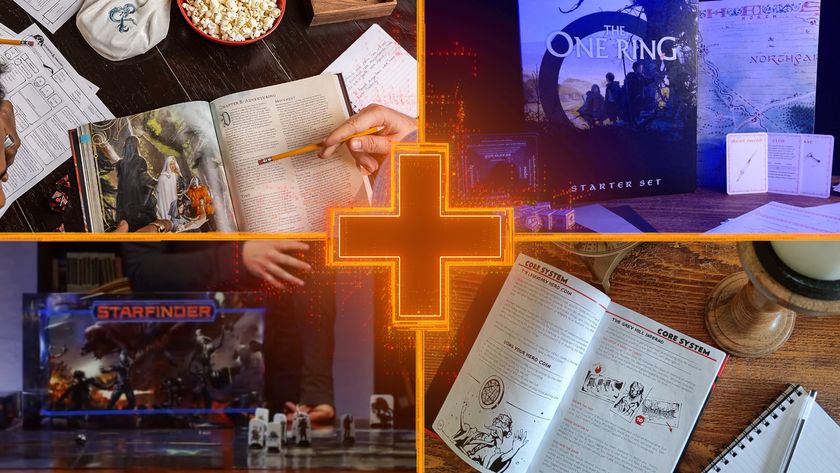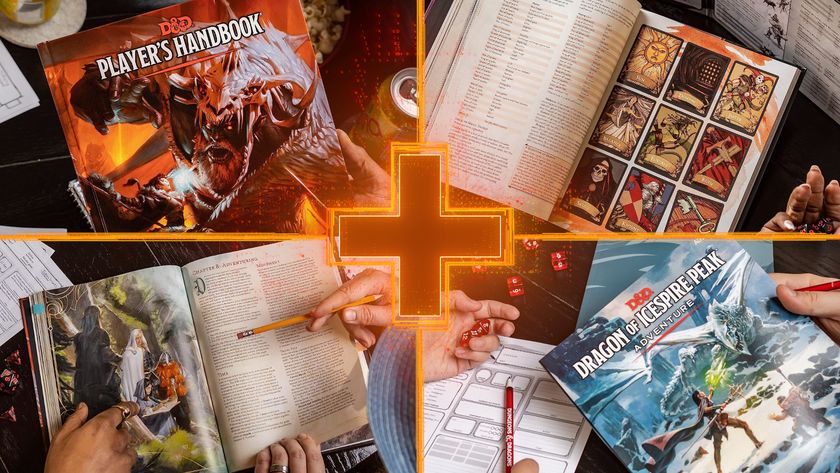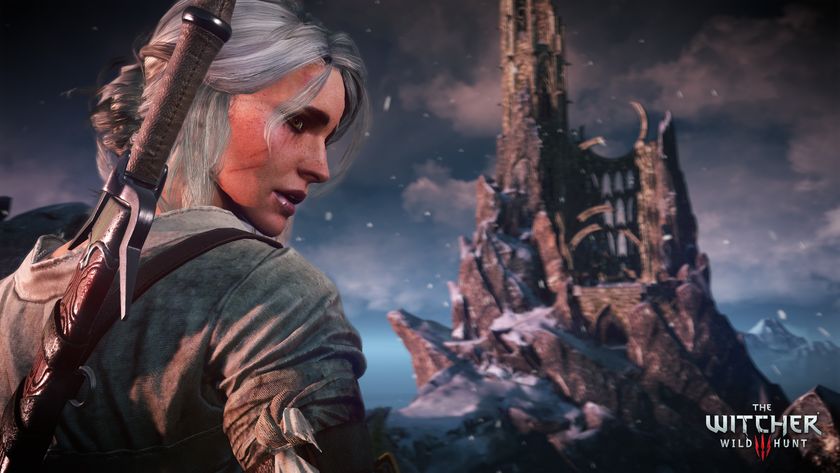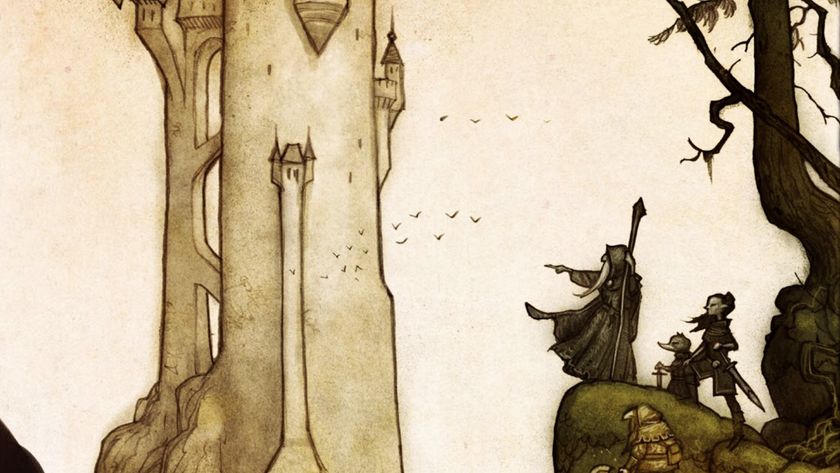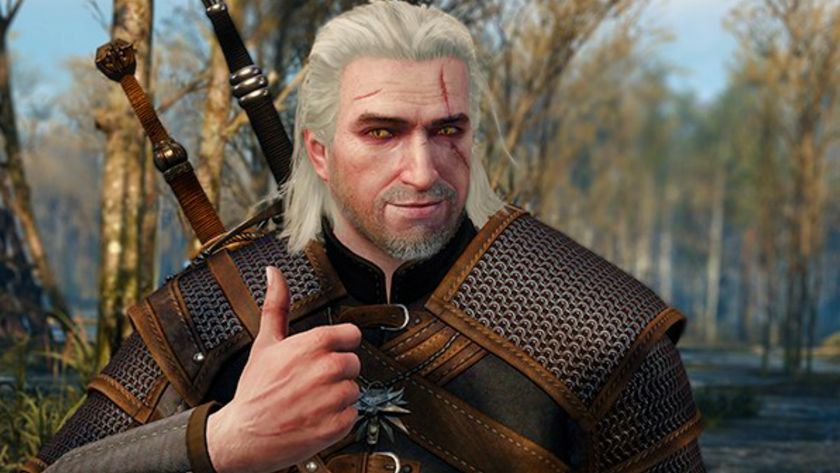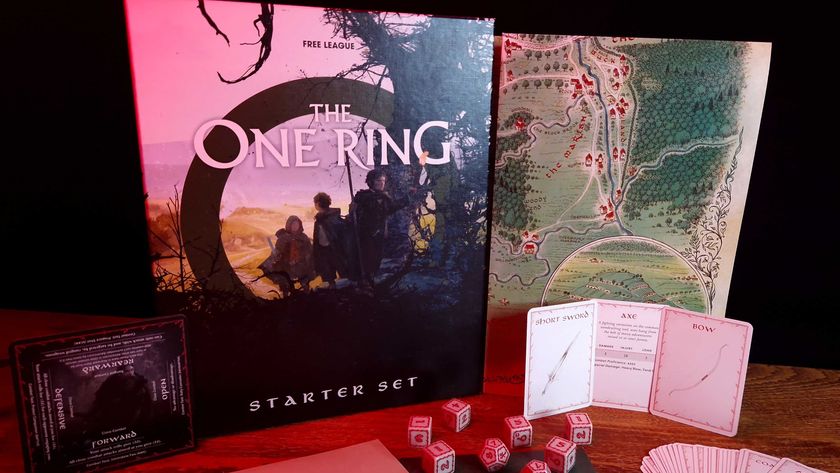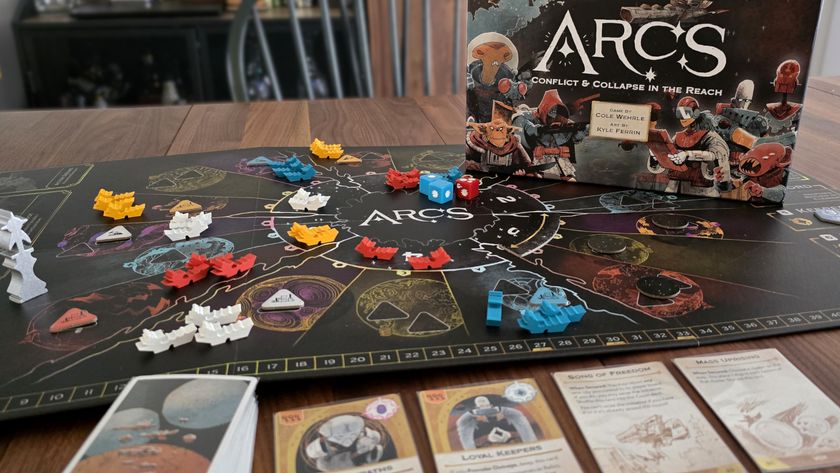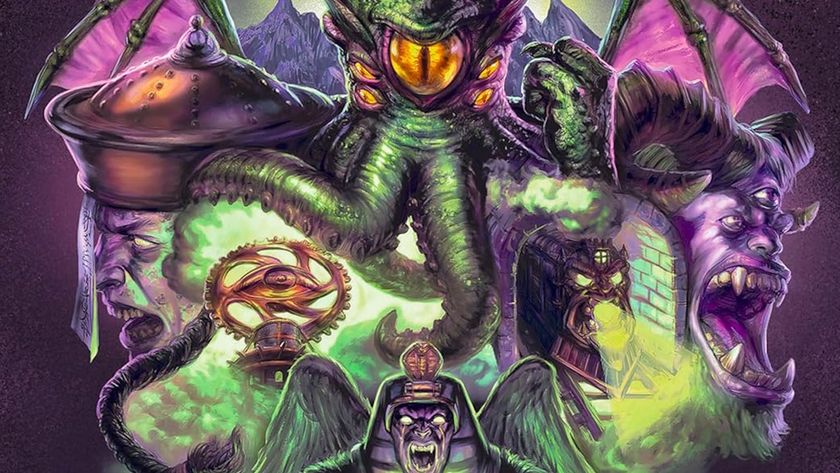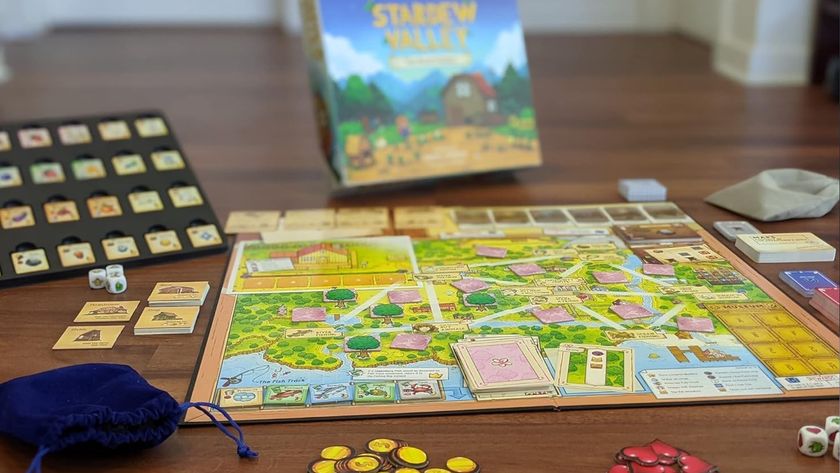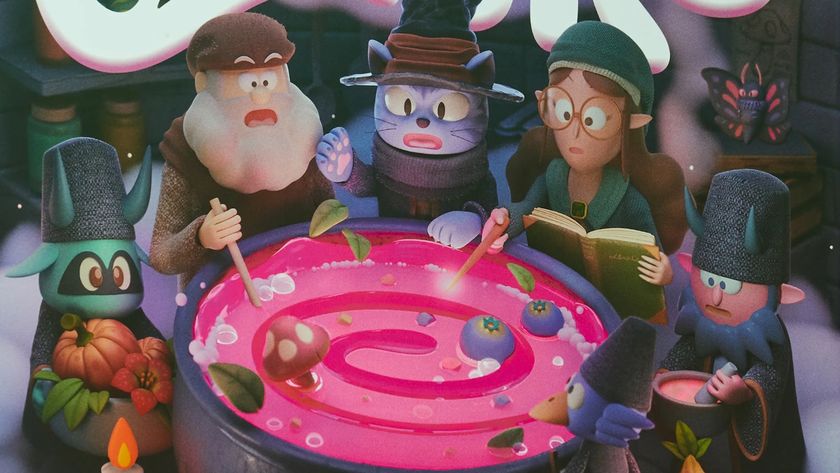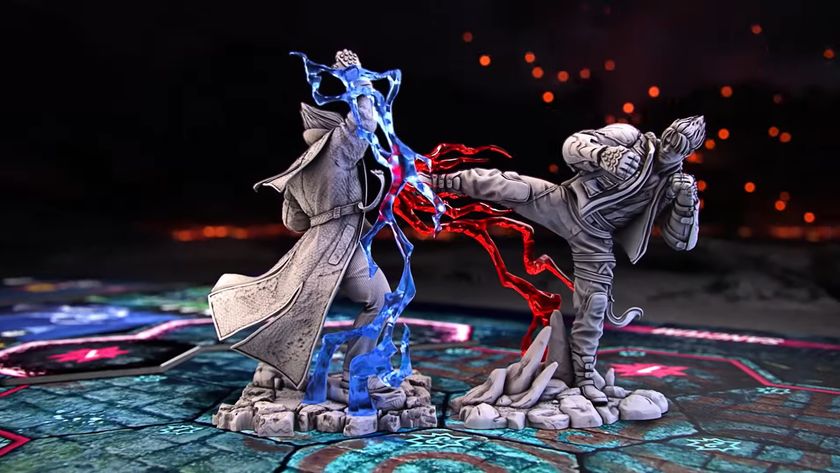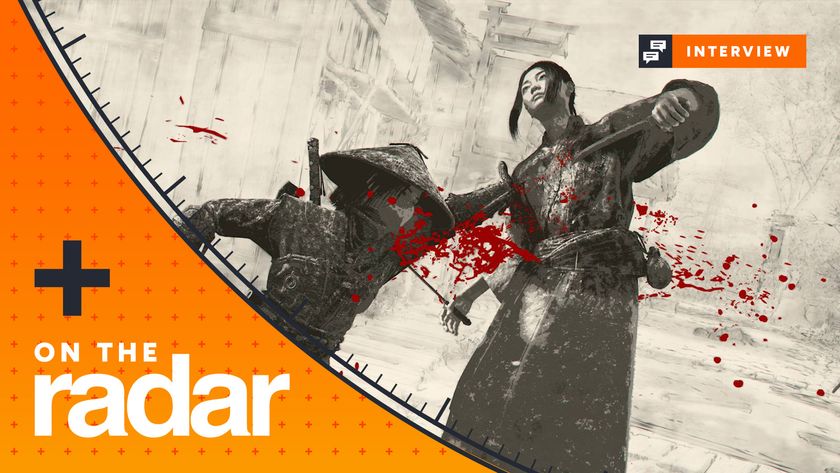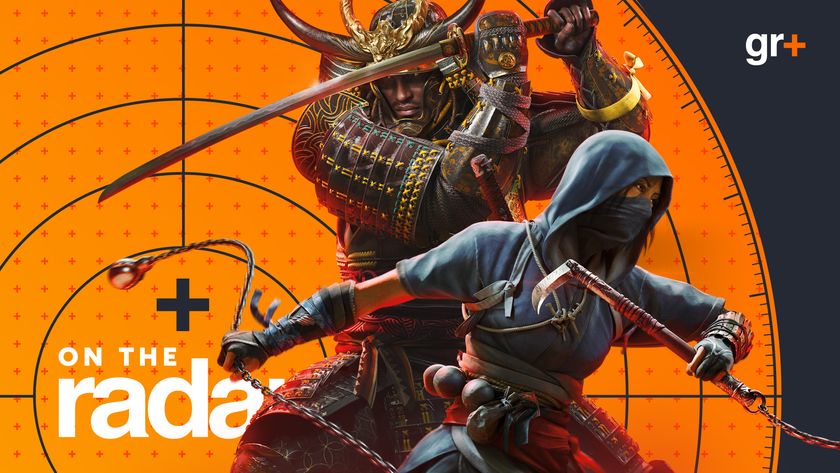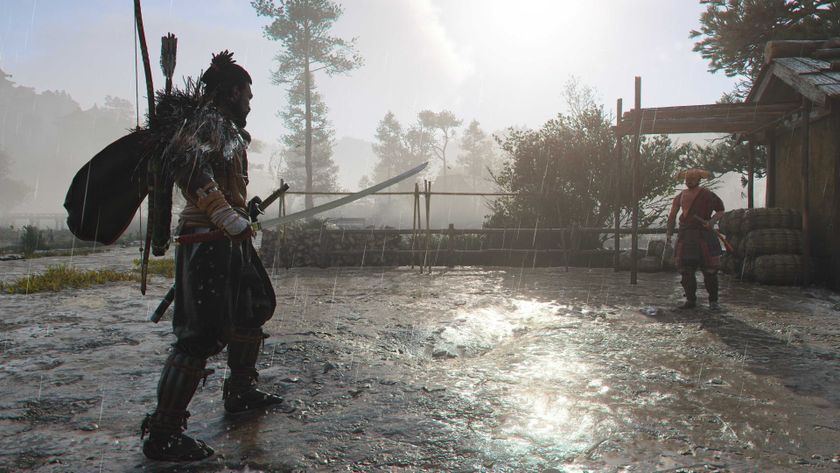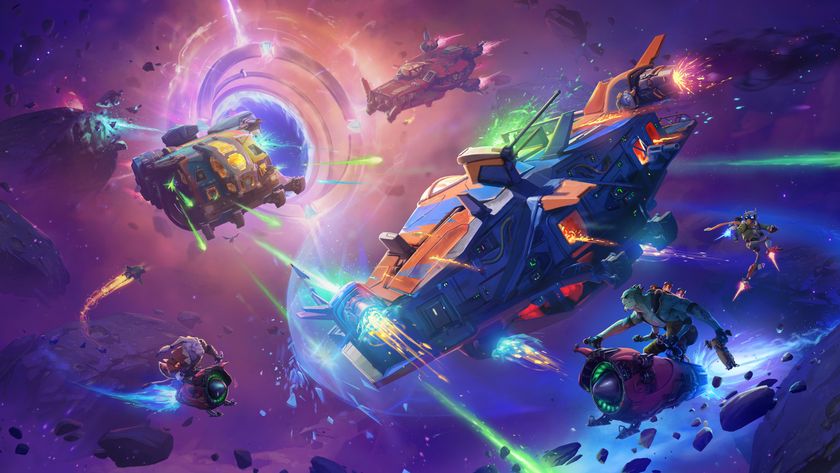6 board games and tabletop RPGs like Baldur's Gate 3 to continue your quest
Keep the adventure going
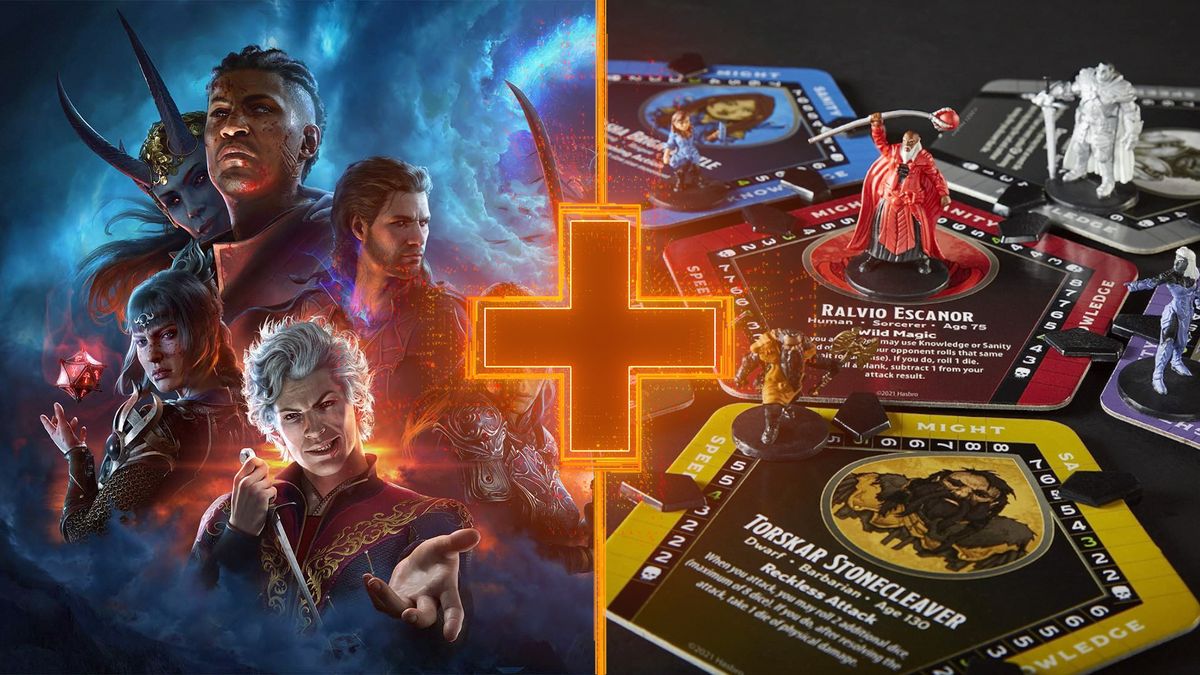
Now that Baldur's Gate 3 has been out for a little while (or a short one, if you're playing on PS5) you may be wondering how to keep the adventure going until its inevitable DLC shows up. And luckily, there's no shortage of board games or tabletop RPGs that can plug the gap. Baldur's Gate 3 already uses the D&D system, for example, so you can hop across to the pen-and-paper equivalent with little fuss.
As a result, I've spent some time rounding up a few suggestions for board games and tabletop RPGs like Baldur's Gate 3. While there are a few obvious recommendations (Dungeons and Dragons books, namely), you'll also find options that are based on some of the best board games or use mechanics introduced by the best tabletop RPGs. To be honest, the hardest part was limiting this list so it didn't drag on endlessly.
Because there's never a need to pay full cost, you'll also find the lowest available price alongside each recommendation. Our bargain-hunting software is always on the lookout for deals, so if there's a discount on offer, you'll see it here.
Board games and tabletop RPGs like Baldur's Gate 3
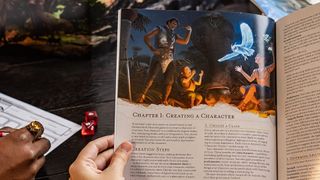
1. Dungeons & Dragons
Specifications
Reasons to buy
Reasons to avoid
OK, let's start with the obvious one. Baldur's Gate 3 is based on the current edition of Dungeons & Dragons (which is why you'll hear folks tossing around words like 'Fifth Edition' or '5e'), and it actually takes place within the same world that most D&D adventures occupy. Funnily enough, it's also the setting of Dungeons & Dragons: Honor Among Thieves.
Known as 'The Forgotten Realms,' this is the stuff of quintessential swords and sorcery; it's a place populated by wizards, elves, dwarves, monsters, and mercenaries going on quests that probably involve dungeons and/or dragons in some capacity. Populated by numerous pre-written adventures and a handful of beginner boxes, it's the closest match to Baldur's Gate because it literally uses the same system.
Even though the current starter set is a fine place to kick things off, I'd actually recommend opting for the older Lost Mines of Phandelver if at all possible. Besides the core adventure being free when you make an account on D&D Beyond (which is a good idea anyway, because it's got an excellent character creator), it's a great example of classic roleplaying. Alright, so you don't go to the city of Baldur's Gate itself during the plot. Yet its story unfolds along the same stretch of coast, meaning you're in a prime position to visit it afterward.
Want to try it as a player? You're better off sticking to the basic rules and should avoid reading published adventures in case any surprises are ruined
Anyway, when teamed with the free rules and some dice (you'll need a few 20, 4, 6, and 12-sided dice, though you can use virtual rollers on D&D Beyond if you'd prefer), you can get started with one of the best tabletop RPGs quicker than you'd think. If you're planning to run the game for a group of friends, that is. Want to try it as a player? You're better off sticking to the basic rules and should avoid reading published adventures in case any surprises are ruined. You can even select pre-generated characters if you'd prefer to get stuck right in.
Want some further reading on the world you'll be exploring in D&D and Baldur's Gate, on the other hand? I'd recommend taking a look at the Sword Coast Adventurer's Guide, which is usually cheap on Amazon and Amazon UK.
- Read more: How to create your first D&D character
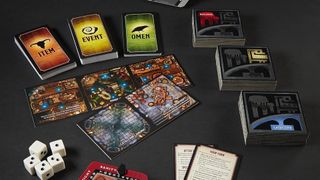
2. Betrayal at Baldur's Gate
Specifications
Reasons to buy
Reasons to avoid
Does the name ring a bell? It should. This spin-off uses the same system as Betrayal at House on the Hill, which has been sitting on our list of the best board games for a long time. Whereas that one challenges you to survive a haunted mansion, Betrayal at Baldur's Gate sets you loose on the titular city.
Broadly speaking, the bones are identical despite that change of scenery. You build the board tile by tile each turn, randomly drawing locations as you explore. Some of these areas are obstacles to overcome, while others feature items or special events. Draw enough of those and one of 50 unique missions will be triggered. The twist? Usually, one of you is revealed as a traitor that's out to get everyone else… all in service of their own secret objective. Perhaps a mind flayer got in your head and is forcing you to hunt down your former allies. Maybe you were influenced by a many-eyed beholder. Either way, things quickly devolve into a desperate us-vs-them battle that'll have you on the edge of your seat.
While it came out years before the threequel was made, it'll still scratch that itch
Sure, that D&D theme may not be as appealing as the horror movie tropes of its predecessor. Its missions vary in quality and aren't always the easiest to understand, too. But generally, this does the original game (which we said was "smart, engaging, and exciting" in our Betrayal at House on the Hill review) justice. In fact, it actually improves on the older, second-edition version of Betrayal that this is based on.
And let's be real for a second - the setting will hit the spot if you're knee-deep in, or are excited about, Baldur's Gate 3. Nods to the franchise are baked into its DNA, and while it came out years before the threequel was made, it'll still scratch that itch.
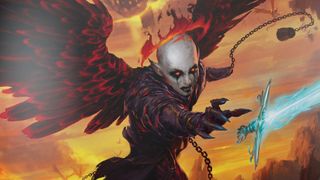
Specifications
Reasons to buy
Reasons to avoid
If you want to head straight to the gritty metropolis of Baldur's Gate, or simply want to learn more about it, this is the book you should pick up. Besides offering an adventure that spends a lot of time in the city, it's billed as a sort-of prequel to Baldur's Gate 3. While you shouldn't expect lots of tie-ins, the video game does reference the events of this story here and there so it's worth a look at the very least.
Just remember, Descent Into Avernus is a D&D adventure that requires an understanding of the rules (which you can get for free here). In addition, it's intended for Dungeon Masters who will be running these missions for their friends. If you're a player, don't peek - that'll ruin the surprise!
Descent Into Avernus is the best source of info on the city of Baldur's Gate right now
Still here? Fantastic. Much like the opening of Baldur's Gate 3, this quest takes a detour into hell (one of Nine Hells, to be precise) and basically verges on fantasy Mad Max as you drive around the wastes in a war machine that looks like it belongs on the cover of a heavy metal album (as we said in our Baldur's Gate: Descent into Avernus review, it's "Dante's Inferno by way of Mad Max: Fury Road"). While the book doesn't do as much with this concept as it could, it's still one heck of an elevator pitch.
What's more, Descent Into Avernus is the best source of info on the city of Baldur's Gate right now. There's a whole section dedicated to its history, culture, religion, layout, and more, including inspiration for creating your own stories there. Plus, it features new character backgrounds and a 'Dark Secret' mechanic that ties the party together. Because Baldur's Gate is a supremely dodgy place, that might be a murder, theft, or general conspiracy.
- Read more: Best D&D class for beginners
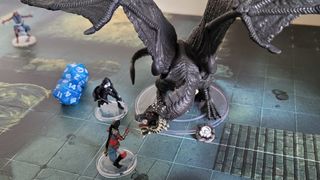
4. Dungeons & Dragons: Onslaught
Specifications
Reasons to buy
Reasons to avoid
Even though this is less of a one-to-one translation of the Baldur's Gate 3 system, Onslaught manages to capture its essence nonetheless. A competitive wargame that challenges you to steal treasure before your rivals can, it ticks a lot of the same dungeon-crawling, loot-hunting boxes that the video game does.
For starters, it uses a simplified version of the D&D rules. If you've ever played Dungeons & Dragons, you'll recognize many of the mechanics on offer here (not to mention the classes). The same is true of each character's abilities, and both factions within the core box - one per player - lean on the same kind of attacks you'll be familiar with from Baldur's Gate 3. This means anyone going from one to the other will feel right at home.
An excuse to go toe to toe with some of the tabletop RPG's most iconic foes
However, it's not just about beating your opponent in Onslaught - its treasure is being guarded by a third, non-player band of monsters who'd obviously prefer it if you didn't steal their stuff. This gives you an excuse to go toe to toe with some of the tabletop RPG's most iconic foes. Kobolds, gnolls, trolls, a dragon… they're all eager to kick the stuffing out of you.
Sure, it's not necessarily going to knock Warhammer off the top spot any time soon. But as we mentioned in our Dungeons & Dragons: Onslaught review, it's "novel enough to tempt even jaded skirmish gamers."
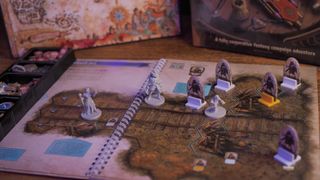
5. Gloomhaven: Jaws of the Lion
Specifications
Reasons to buy
Reasons to avoid
It's set in a completely different world, but there's a lot of crossover between this board game for adults and Baldur's Gate 3. Namely, it's a fantasy epic that revolves around a grungy, dangerous city where you're likely to get your throat cut should you wander down the wrong street. While Gloomhaven's characters aren't as memorable, the fact that you'll go on this adventure with your friends makes up for it.
Much like the video game, your decisions will also influence the world around you. Certain missions will become available - or close off - depending on what you choose to do, so your actions have a tangible impact on the kingdom of Gloomhaven itself. Throw in the opportunity to level up your characters and you're left with a pretty engrossing experience that'll last you weeks.
Nothing else compares
Jaws of the Lion isn't just a classic RPG using dice to resolve attacks, though. Instead, it opts for a unique card-based system that dictates when you'll act along with what you'll do. This gives the game a very distinctive identity, helping it stand out from the crowd.
Better yet, it tees you up nicely for the original Gloomhaven or its sequel, Frosthaven. While these are more expensive, they're also a lot bigger and kick the same ideas into overdrive. As we said in our Gloomhaven review, it's the "heavyweight champion of co-op tabletop dungeon-crawling. Nothing else compares."
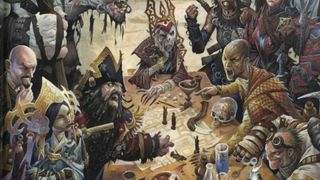
6. Pathfinder
Specifications
Reasons to buy
Reasons to avoid
The original Baldur's Gate used the third edition of D&D for its ruleset, and it was a whole other kettle of fish. Besides being a lot denser in terms of mechanics (the current version is much more accessible), it's crunchier so far as stats and combat go. Many fans preferred that approach, so when it was scrapped back in the late 2000s, there was an outcry. Enter Pathfinder.
Despite being a franchise in its own right these days, this tabletop roleplaying game was actually an offshoot of D&D at the time. Made using the Open Game License (or 'OGL') which allows others to use the Dungeons & Dragons system in their own publications, it may as well have been the third edition in a funny hat. Gamers ate it up as a result, and Pathfinder grew into D&D's biggest source of competition. In essence, the folks at Dungeons & Dragons made their own nemesis.
It's a good fit if you want something a little different
While its gameplay has evolved since then, Pathfinder remains an excellent example of old-school fantasy games. It generally has more depth than D&D, so even though it's not set within the Baldur's Gate universe, longtime players of the franchise will still appreciate it.
Plus, there are countless prewritten adventures for you to try once you've blasted through the starter set, or if you want to kick off with a grander quest right away. These often go beyond the trappings of medieval Europe and explore other cultures in a sensitive, thoughtful way, so it's a good fit if you want something a little different too.
For more recommendations, check out these board games and tabletop RPGs like Diablo 4. It's also worth taking a look at our guide to board games and tabletop RPGs like The Legend of Zelda: Tears of the Kingdom.
Sign up to the 12DOVE Newsletter
Weekly digests, tales from the communities you love, and more

I've been writing about games in one form or another since 2012, and now manage 12DOVE's tabletop gaming and toy coverage. You'll find my grubby paws on everything from board game reviews to the latest Lego news.
